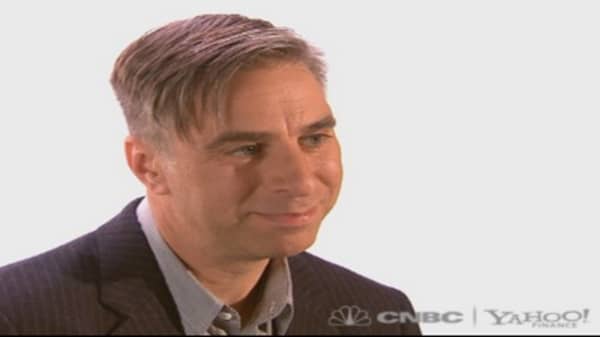Adam Werbach has a knack for controversy - and for making history.
In 1996, at 23, he was elected the youngest president of the Sierra Club, the environmental organization, which boasted 600,000 members and a budget of $45 million.
"I wasn't even old enough to rent a car, and all of a sudden I was supposed to lead the oldest and largest grassroots environmental organization," Werbach told "Off the Cuff", "I remember my first reaction was just, oh my god, I don't know if I can do this, I was just scared."
Then in 2004 he gave an incendiary speech, "Is Environmentalism Dead?", at the Commonwealth Club of San Francisco. "I'm done calling myself an environmentalist", he told his audience.
"It was frightening, because it was giving a eulogy for the thing that I loved the most, that I had spent my whole life doing, to the very people who were also invested in it," Werbach recalled.
Werbach felt the time was right for the organization to ask tough questions, to look deep within itself to see if their mission was on the right track. "I felt was that we were failing, that after spending years and millions, even billions of dollars trying to get the word out about climate change, people weren't changing. We weren't making a difference."
The controversial speech was widely circulated and the backlash was immediate. The environmental wunderkind lost colleagues and long-time friends.
A year later, he further alienated the environmental community when he teamed up with Wal-Mart, the world's largest retailer, a company he had called, "a new breed of toxin" that could "wreak havoc on a town" in his 1997 book, "Act Now, Apologize Later."
"My responsibility was to train the 2 million people who work at Wal-Mart on what sustainability is, and how it can be a tool for change, not just for the earth, but to run a better business."
He was eviscerated by some environmentalists who said he had "sold his soul" and was accused of abandoning his principles.
Now, he's taking on another challenge; trying to revolutionize the way we consume products. In 2012, he co-founded yerdle - a website based on giving and sharing; a way to unclutter our lives. "When we launched yerdle, we came up with a very simple idea that sharing things that are already in your friends' closets and garages is 100% better than buying something new, if you can do it," he said. "We have so much stuff. I mean, self-storage in the United States alone has grown by 1000% in the last 30 years."
yerdle uses Facebook to help connect people who want to share or give away the stuff they no longer need or want. Some items listed include a used Mr. Coffee Maker, mattresses and a treadmill.
As the company's co-founder, Werbach says it's smarter and better for the environment to share more, rather than buy more. "Just because it's easy to get a tent online for $200, wouldn't it still be better to get one from a next door neighbor for free, for tonight?"
He claims consuming and accumulating are on the way out. "The long transition we're in right now is a process of de-materialization, of getting out of things as the solution to what our problems are."
The company is hoping to grow beyond individuals trading and sharing with each other. Werbach is convinced the idea will even change the way we do business? "What companies are doing is they're moving much more into services. How can I sell you a service instead of selling you a thing? It's not as much a change," he continued, "as just a re-connection to the very obvious choice that we should just be making, in a way that is good for the environment, but certainly good for our pocketbooks, too."



